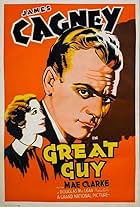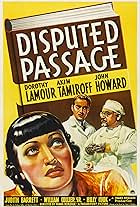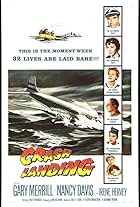
blanche-2
Joined May 1999
Welcome to the new profile
We're still working on updating some profile features. To see the badges, ratings breakdowns, and polls for this profile, please go to the previous version.
Ratings6.4K
blanche-2's rating
Reviews6K
blanche-2's rating
The village of Granville Norton is the site of Apley Court, home of the precious Apley Gold honey.
Ambrose Deddington (Griff Rhys Jones) presides over the manor and the bees. He lives with his sister Tamara (Imogen Stubbs). The family is in its eighth generation of bee production.
Ambrose himself is a cancer survivor snd credits Apley Gold and bee venom for his cure. Then, his precious hives are threatened when stolen.
Ambrose tells Barnaby and Winter that the culprit is his nephew Jude, who, with his mother Melissa, are forbidden to be in the manor or take part in the honey production.
Jude denies this - he makes home-brewed mead and takes care of his mother, who has mental issues.
Then the village doctor is found dead from a bee attack. Another murder follows, equally vicious, using beeswax.
Secret affairs, lies, family dysfunction, and Dudgeon attempting yoga at Sarah's encouragement make for an interesting episode. She tells him it takes 10,000 hours to be good at anything. "9,999 to go," he says.
Ambrose Deddington (Griff Rhys Jones) presides over the manor and the bees. He lives with his sister Tamara (Imogen Stubbs). The family is in its eighth generation of bee production.
Ambrose himself is a cancer survivor snd credits Apley Gold and bee venom for his cure. Then, his precious hives are threatened when stolen.
Ambrose tells Barnaby and Winter that the culprit is his nephew Jude, who, with his mother Melissa, are forbidden to be in the manor or take part in the honey production.
Jude denies this - he makes home-brewed mead and takes care of his mother, who has mental issues.
Then the village doctor is found dead from a bee attack. Another murder follows, equally vicious, using beeswax.
Secret affairs, lies, family dysfunction, and Dudgeon attempting yoga at Sarah's encouragement make for an interesting episode. She tells him it takes 10,000 hours to be good at anything. "9,999 to go," he says.
They Do It with Mirrors was done at one point with Helen Hayes as Miss Marple and Bette Davis as Carrie-Louise. I have to agree with one poster, I enjoyed the Hayes version more. It was livelier and came off as a little less complex.
Ruth van Rydock (Faith Brook), concerned about her sister Carrie-Louse (Jean Simmons) wants Jane to visit her. Carrie-Louise is marred to Lewis Serrocold (Josh Ackland), her third husband. He has made the estate into an institute for youthful offenders.
Miss Marple visits her old friend. When a man named Christian Gulbranson (John Bott) arrives to see Lewis, he is later shot while sitting at the typewriter in his room. Everyone is watching home movies at the time; Lewis and one of the boys who live on the premises are arguing in the next room.
In the letter Gulbranson was writing he states that Carrie-Louise is being poisoned! Detectives arrive at the scene. Always my favorite part - when DI Slack (David Horovitch) discovers Miss Marple is there!
This time, though, he realizes that he can use her help. Marple figures out whodunnit - but how needs some contemplation. It was very cleverly accomplished.
The plot in this one is too padded with fillers. It takes awhile for the murder to occur. Meanwhile we watch a flirtation with a married woman, an unhappy husband, and a young man claiming his father is Winston Churchill. Doesn't add much.
Ruth van Rydock (Faith Brook), concerned about her sister Carrie-Louse (Jean Simmons) wants Jane to visit her. Carrie-Louise is marred to Lewis Serrocold (Josh Ackland), her third husband. He has made the estate into an institute for youthful offenders.
Miss Marple visits her old friend. When a man named Christian Gulbranson (John Bott) arrives to see Lewis, he is later shot while sitting at the typewriter in his room. Everyone is watching home movies at the time; Lewis and one of the boys who live on the premises are arguing in the next room.
In the letter Gulbranson was writing he states that Carrie-Louise is being poisoned! Detectives arrive at the scene. Always my favorite part - when DI Slack (David Horovitch) discovers Miss Marple is there!
This time, though, he realizes that he can use her help. Marple figures out whodunnit - but how needs some contemplation. It was very cleverly accomplished.
The plot in this one is too padded with fillers. It takes awhile for the murder to occur. Meanwhile we watch a flirtation with a married woman, an unhappy husband, and a young man claiming his father is Winston Churchill. Doesn't add much.
The Candidate is a 1972 film starting Robert Redford and directed by Michael Ritchie. Oscar-winning writer Jeremy Larner used speeches from Eugene McCarthy's campaign.
A couple of interesting points - other than the immigrants, we're still dealing with the same issues today mentioned in the film. Looking back, the country was in turmoil in 1972 and it became worse with Watergate. Back then it was youthful idealism versus the establishment. Today it goes way beyond that, blue vs. Red.
Bill McKay (Redford) is an attractive, Idealistic California attorney, a man involved with civil rights, the poor, legal aid, and environmental causes. He is invited to run for the Senate against a sure winner, incumbent Crocker Jarman (Don Porter) to bring some issues he cares about to the voters. He wants to do it his way, without handlers, but of course the handlers take over.
Basically a good man, when it starts looking like he might win, his ambition steps on his integrity. He makes compromises. His happy marriage is threatened by a casual affair. Slowly but surely, he starts selling out.
Bill's father (Melvyn Douglas) was a Senator, and while Bill doesn't want to be like him, you can tell he sees himself going that way.
As his opponent, Don Porter is complete perfection as a good old-boy Republican.
In the end, McKay wins and realizes a) he's paid a huge price; and b) he doesn't know what to do about all those promises he made. He panics.
I think once the shock wears off, McKay will gets to work, align himself with like thinkers, and attempt to find part of himself again. And I think he will fight for his marriage.
Good times are coming with Jerry Brown, and McKay will find himself more mainstream. In the end, he will not accept his father's version of a politician - a game-player, a deal-maker, a cynic.
This film was intended as a satire. It became instead a prediction.
A couple of interesting points - other than the immigrants, we're still dealing with the same issues today mentioned in the film. Looking back, the country was in turmoil in 1972 and it became worse with Watergate. Back then it was youthful idealism versus the establishment. Today it goes way beyond that, blue vs. Red.
Bill McKay (Redford) is an attractive, Idealistic California attorney, a man involved with civil rights, the poor, legal aid, and environmental causes. He is invited to run for the Senate against a sure winner, incumbent Crocker Jarman (Don Porter) to bring some issues he cares about to the voters. He wants to do it his way, without handlers, but of course the handlers take over.
Basically a good man, when it starts looking like he might win, his ambition steps on his integrity. He makes compromises. His happy marriage is threatened by a casual affair. Slowly but surely, he starts selling out.
Bill's father (Melvyn Douglas) was a Senator, and while Bill doesn't want to be like him, you can tell he sees himself going that way.
As his opponent, Don Porter is complete perfection as a good old-boy Republican.
In the end, McKay wins and realizes a) he's paid a huge price; and b) he doesn't know what to do about all those promises he made. He panics.
I think once the shock wears off, McKay will gets to work, align himself with like thinkers, and attempt to find part of himself again. And I think he will fight for his marriage.
Good times are coming with Jerry Brown, and McKay will find himself more mainstream. In the end, he will not accept his father's version of a politician - a game-player, a deal-maker, a cynic.
This film was intended as a satire. It became instead a prediction.




























